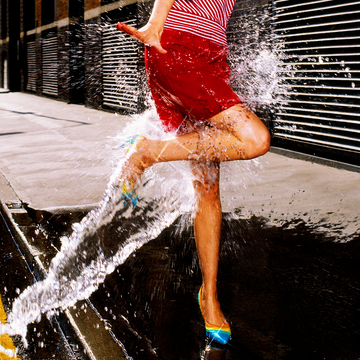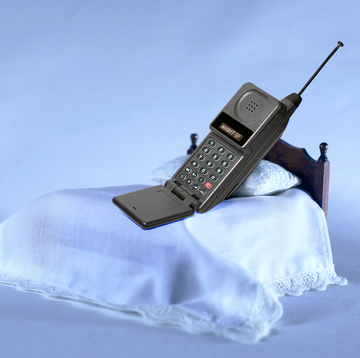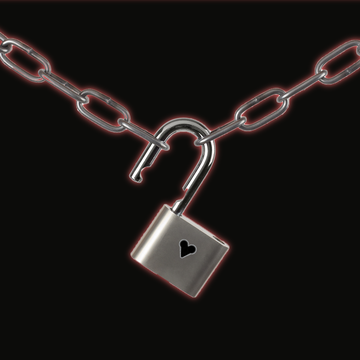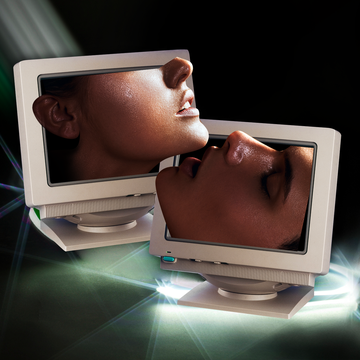This article was reviewed by dermatologist Mona Gohara, MD, of Dermatology Physicians of Connecticut and associate clinical professor at Yale School of Medicine.
Well, you made it here, so you’re probably curious about a few things related to the ins and outs (see what we did there?) of grooming back there. Maybe your number one Q is, how safe is anal bleaching? Or what are the side effects of anal bleaching? And is it worth the $$$?
We’ll get to those answers, but first, FWIW, the darker color of your butthole is totally normal (shout-out to genetics and everyday friction, says gastroenterologist Rabia De Latour, MD, an assistant professor at NYU’s Grossman School of Medicine). Translation: That means you absolutely do not need to go lighter. And, ultimately, any approach to anal bleaching, whether you try to DIY or go to a professional for a chemical or laser bleaching procedure, can endanger your health for a temporary benefit. “If one of my patients told me they were considering doing this,” Dr. De Latour says, “I’d warn them that the cosmetic benefit does not outweigh the health risks.”
But of course, you may still be wondering more about anal bleaching procedures ahead of making your final decision about them. So we wanna supply you with all the facts, straight from GI docs and dermatologists. Here’s everything you need to know about anal bleaching before you do anything to that 🍑.
1. The cheapest approach to anal bleaching is DIY, but it’s risky.
You *can* buy an at-home skin-bleaching serum, cream, or peel online or at a drugstore, salon, spa, or cosmetic surgeon’s office for less than you would an in-office treatment. Depending on the product, it may contain ingredients such as hydroquinone, azelaic acid, Kojic acid, niacinamide, or other botanical extracts, all of which chemically exfoliate dead skin cells responsible for hyperpigmentation, aka skin darkening caused by excess pigment, according to Joshua Zeichner, MD, New York City–based dermatologist and director of cosmetic and clinical research in dermatology at Mount Sinai Hospital.
The problem: Some chemicals in skin-lightening products, like kojic acid, may be considered carcinogenic (as in, has the potential to cause cancer), as per data from the National Institute of Health. When you DIY, “you’re more likely to apply the product improperly, which can injure the area and increase the chance that the product gets into the rectum and enters the bloodstream,” Dr. De Latour says, adding that it’s best to stick to products manufactured in the U.S. to minimize exposure to potentially dangerous ingredients.
2. Side effects of chemical bleaching products can seriously suck.
“Bleaching of the skin in general can come with irritation and inflammation,” says Dr. Gohara. It could be as minimal as dermatitis or increased acne but, in rare cases, could cause a darker bluish-black pigmentation on the skin as well, according to 2016 research.
Beware of severe itching, burning, and stinging during and after treatment, Dr. Zeichner adds. “Skin irritation is common when you use lightening creams, and it is even more likely to develop when you treat sensitive areas like perianal skin.”
If you experience any adverse effects in response to a product, stop using it right away, thoroughly wash the affected area with a gentle cleanser, then apply a petroleum-based moisturizer, such as Vaseline, to form a protective seal over the skin, he says.
3. Professional anal bleaching can be pricey, but worthwhile.
Some spas, salons, and plastic surgeons offer the service for about $125 per session, according to Cindy Barshop, CEO and founder of VSpot Medi-Spa in New York City. Others, like the Unisex Intimate Bleaching Peel, cost up to $1,000 for three 30-minute treatments scheduled two weeks apart, says licensed aesthetician Graceanne Svendsen. You could see results after one session, but it will likely take several sessions to get the skin color you want, and you often need to apply lightening products at home between sessions. Like DIY bleaching, the results can last up to six months, Svendsen says.
Because professionals typically use more potent lightening products that deliver faster results than DIY options, according to Svendsen, exposure to professional-grade products could increase your chance of post-treatment irritation, Dr. Zeichner says.
The biggest benefit of going pro is peace of mind, since products are applied by actual technicians who can see what they’re doing, Dr. De Latour says.
4. You need to forgo sex during anal bleaching treatments.
To prevent skin infections, Svendsen recommends skipping sexual activities for three to five days post-treatment, even if the treated area isn’t irritated. And if the skin in the anal area is open or raw any time after treatment, you should continue to abstain, Dr. Zeichner says.
Because heat and friction can irritate your skin and cause hyperpigmentation that makes it harder to maintain anal bleaching results, either you should avoid waxing and laser hair removal plus activities such as hot yoga, running, bathing, wearing a thong, and soaking in a hot tub—or at least exercise caution (so yeah, now may not be the best time to test out those toys for anal play).
5. You can try laser anal bleaching as an alternative.
The treatment breaks down dark skin pigment into small particles that are later carried away by white blood cells. Although it can cause a hot, prickling sensation, in the area that’s treated, a prophylactic non-steroidal anti-inflammatory drug like ibuprofen can help, as can a topical numbing agent applied by your practitioner.
6. Laser treatments have some uncomfortable side effects too.
Afterward, the skin might swell and feel almost like sunburned for a few days. In rare cases, it could irritate the anal canal lining and cause burns, which can result in permanent scarring, Dr. De Latour says.
7. Anal bleaching might make pooping more difficult.
Any of the bleaching treatments outlined above can lead to scarring (aka anal strictures), which could prevent the anus from properly stretching during bowel movements, and ultimately lead to constipation and pain while evacuating your bowels, according to Dr. De Latour. “This is a very sensitive area of the body, and there are no studies that show what the real risks of anal bleaching are,” she says.
8. It’s best to talk with an MD to make sure you have the safest experience.
If you spring for pro anal bleaching, it’s extra important to choose a provider with a dermatologist or gynecologist on staff to oversee the procedure, Dr. De Latour says. Alternatively, Dr. Zeichner suggests consulting a dermatologist about DIY products before using them. There are a lot of unregulated products out there on the market, especially that aren’t sold by U.S. vendors and aren’t necessarily FDA-approved. These products may not have all ingredients labeled and could have unsafe amounts of topical steroids...the side effects of these anal bleaching creams could also be highly unpleasant, like skin rashes, scarring, ulcers, and even discoloration, according to the American Academy of Dermatology Association.
Even if you’re using doctor-prescribed lightening agents like those containing hydroquinone, you need to be careful. “Extreme caution should be used when prescribing medications that can even out skin tone; these medications should come from a board- certified dermatologist,” says Dr. Gohara. And if you’re going to try laser bleaching, make sure you chat with a dermatologist first to vet the procedure and practitioner.
Ashley Oerman is a contributing writer at Cosmopolitan, covering fitness, health, food, cocktails, and home. You can follow her on Instagram @AshleyOerman. She is pro-carbs.
Sarah is the associate lifestyle editor at Cosmopolitan where she covers food, home, health, career...basically all the things you love to love — follow her on Instagram.
Taylor is the former Sex and Relationships editor who can tell you exactly which vibrators are worth the splurge, why you’re still dreaming about your ex, and tips on how to have the best sex of your life (including what word you should spell with your hips during cowgirl sex). You can follow her on Instagram here.












